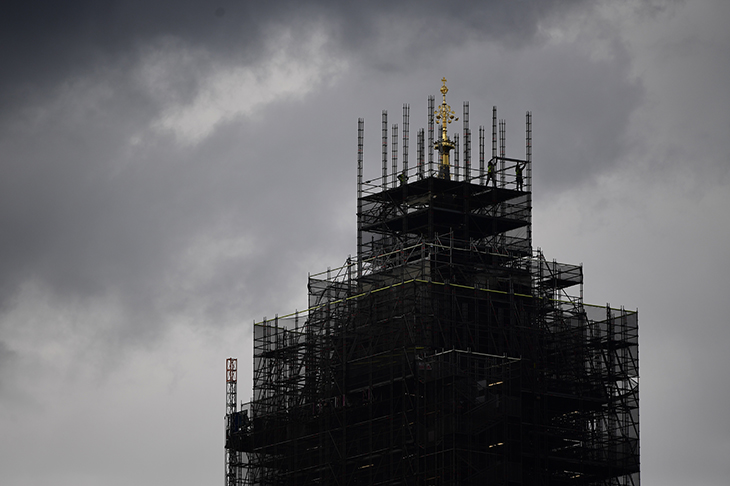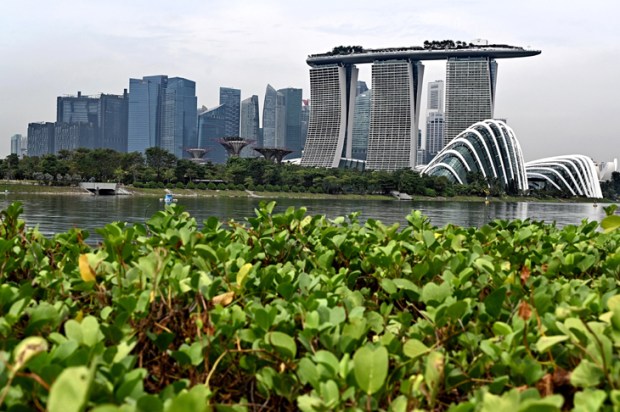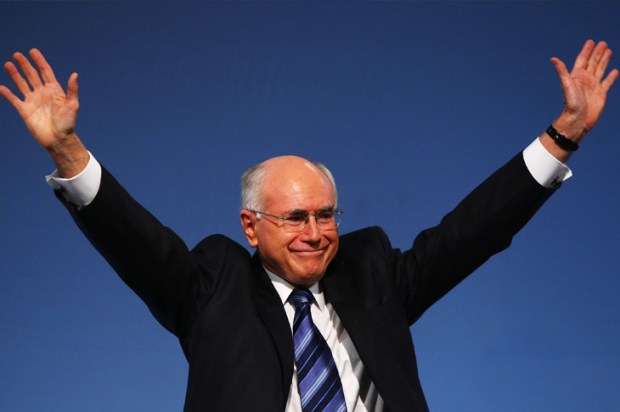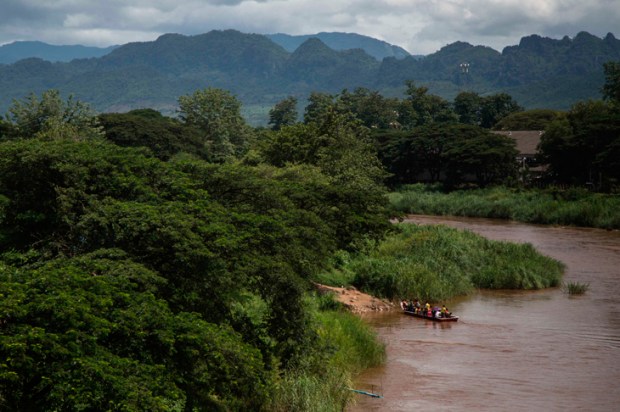I flew into a tempest. Although still early autumn, wild, windy and wet weather ravaged the UK, causing traffic chaos across the nation. In Yorkshire, the wind and rain wreaked havoc with the World Cycling Championships. But the weather was mild compared to the storm that has enveloped British politics. As I was departing Australia, the UK Supreme Court had declared the prorogation of Parliament unlawful. It was a judgment high on rhetoric and low on constitutional reasoning. The speaker, John Bercow, was gleefully recalling the Commons, and Prime Minister Boris Johnson was flying back from the United Nations. The latest skirmishes in the Battle for Britain were underway.
The Houses of Parliament reflected the mood. Big Ben is shrouded in scaffolding, as is much of the Palace of Westminster. The interior of the great Westminster Hall is full of cranes, and the road outside the parliament is being reconstructed. As rain fell over London, the scene was a metaphor for the political and constitutional crisis consuming the nation. Walking along Whitehall, I overheard people defining themselves as ‘leavers’ or ‘remainers’. Brexit has become Britain’s new reality TV show, with characters and plot changes that no script writer could have envisaged.
It is fair to say from my various meetings in London with MPs, advisors and think tanks that no one was really confident about the outcome. Most discussed the subject from the perspective of their preferred result, mindful that there would probably be many twists and turns to come. Although a general election seems likely, it carries significant risks for both the conservatives and Labour. By the time I departed Europe ten days later, Boris Johnson had put a proposal to the EU, but the outcome still appeared in the balance.
The main purpose of my journey was to lead an Australian delegation to the European parliament, and to visit one member-state, this year Greece. The three days in each of Brussels and Athens were packed with back-to-back meetings with key parliamentary committees and executive members. We also had the opportunity to visit Passchendaele and the Menin Gate Memorial at Ypres, and to lay wreaths at the Tyne Cot and Phaleron War cemeteries in Belgium and Greece. The maintenance of our war cemeteries is a tribute to the magnificent work of the Commonwealth War Graves Commission and the commitment of their staff around the world.
The continental Europeans are at a loss to understand the UK. For them the stability and unity of Europe is paramount, an understandable sentiment given the history of conflict on the continent, especially the mass slaughter of two world wars, and the subsequent decades of peace. Although convulsed by a genuine sense of loss and frustration, most seemed resigned to Britain leaving the Union. Regardless of Brexit, Australia has a significant opportunity for a free trade agreement with the EU. Much has been made in Australia of our opportunity to enter an agreement with Britain post-Brexit, but even without the UK, Europe will remain our third-largest trading partner after China and Japan.
As many members of the European parliament are new, having been elected in July, the three days in Brussels was a unique opportunity to promote a deal. I did Q&A sessions with major committees of the 751-member parliament, answering queries on subjects ranging from Australia’s position on trade through to climate change. A few hundred MEPs participated in these sessions, giving the delegation the opportunity to advocate for Australia early in the life of the new European parliament. Although the trade negotiations are being conducted with the European Commission, the parliament must ratify the agreement. Unsurprisingly, many of the questions concerned the likely treatment of farm produce under a FTA, both in Europe and Australia.
Our message was clear: Australia is a trading nation, and we believe that global prosperity has been built on freer trade. With President Trump imposing trade barriers, the Europeans seem genuinely interested in furthering free trade arrangements with other nations.
What surprised me the most, both in London and Brussels, and subsequently on the visit to the Greek parliament and government in Athens, was the intense interest in Australia’s view of China. While welcoming investment, the Europeans seem increasingly concerned about China’s willingness to abide the international rules based order.
‘Greece is open for business’, is the clear message of the new centre-right government of Prime Minister Kyriakos Mitsotakis. The ancient home of democracy faces an enormous challenge. Debt is running at 180 per cent of GDP and the country is subject to an agreement stretching out to 2060 to repay it. The government, with a mix of experienced politicians and business expertise, enjoys a majority in the parliament, giving it four years to advance economic reform. There are significant opportunities for Australian companies in the privatisation of infrastructure, the development of commercial and property ventures, and the exploration for hydrocarbons. A new optimism is evident. Even after the summer vacation, the sprawling city of Athens is crowded with tourists. The opposition Syriza party is experiencing the journey of all new oppositions, having to chart a future course. It is not sure whether to remain a party of the radical Left, or turn to the centre. In the meantime, the government enjoys widespread support, an essential requirement if it is to begin the long, arduous process of restoring the economic fortunes of Greece.
Got something to add? Join the discussion and comment below.
Get 10 issues for just $10
Subscribe to The Spectator Australia today for the next 10 magazine issues, plus full online access, for just $10.
You might disagree with half of it, but you’ll enjoy reading all of it. Try your first month for free, then just $2 a week for the remainder of your first year.














Comments
Don't miss out
Join the conversation with other Spectator Australia readers. Subscribe to leave a comment.
SUBSCRIBEAlready a subscriber? Log in